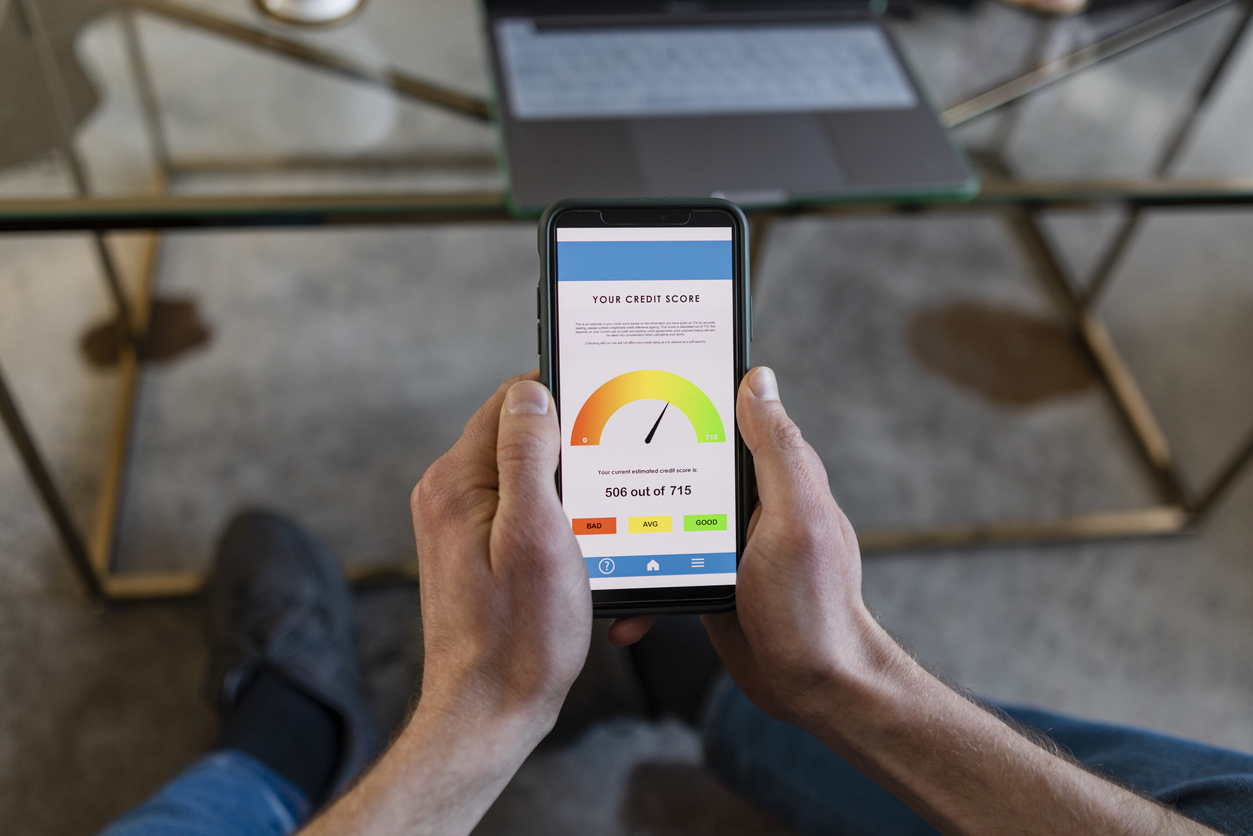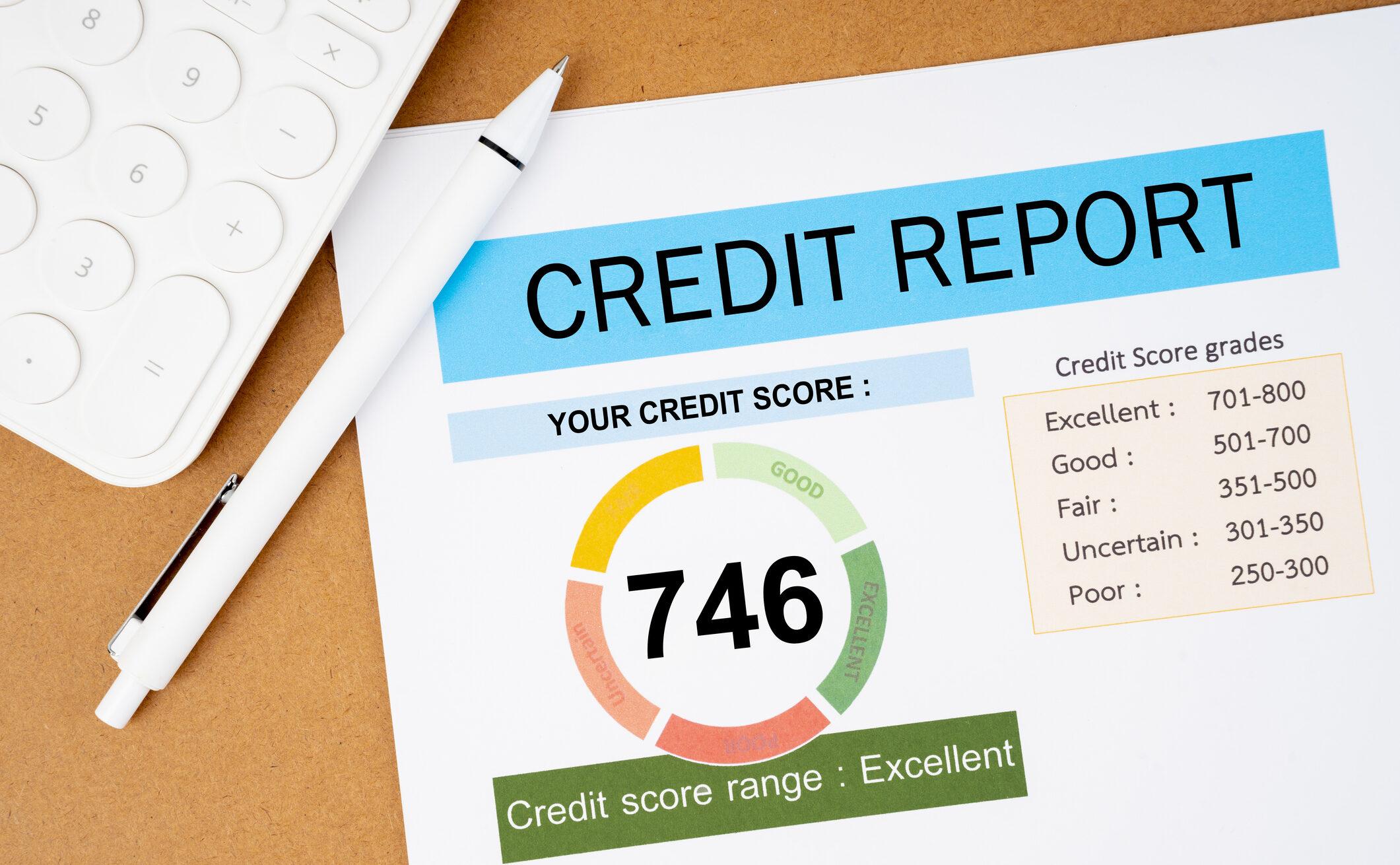
Key takeaways
- A FICO credit score is a measure of your personal finances that lenders use to assess your credit risk.
- Your FICO score plays an important role in determining the mortgage terms a lender will offer you, such as your interest rate and loan amount.
- Different mortgage types may require different credit scores.
- When applying for a joint mortgage, each person’s credit score matters.
This guide provides an overview of how credit scores work and how they can impact the offer you may receive when applying for a mortgage.
What Is a FICO score?
A FICO score is a metric of a consumer’s credit risk that the Fair Isaac Corporation administers for the benefit of financial institutions and lenders who provide access to credit.
Started in the 1960s, the score is now a standard in the finance world, with 90 out of the 100 largest U.S. financial institutions relying on it to gauge the creditworthiness of borrowers and potential borrowers.
The range for a FICO score begins at 300 and ends at 850. The higher your score, the lower your credit risk to lenders. Different FICO score models exist, and banks will use different models depending on the nature of the lending decision (e.g., a credit card or auto loan) and the specific credit reporting bureau (Equifax, TransUnion, or Experian).
Factors that can affect your FICO score
The difference between the available FICO score models is the weight (the percentage) that the following factors have on your score.
Your payment history
Your payment history is a measure of how you’ve handled repaying debts in the past – in other words, how timely you make payments. Borrowers with zero late payments will score better in this area.
Your payment history also includes:
- The amount of time that’s passed since any delinquency in a payment
- The amount of the delinquency
- How long a delinquency existed
Amount of your current debt
Your FICO score considers how much debt you currently have, as it will affect your ability to meet future debt obligations. This part of your score also considers the following factors:
- The type of credit
- The number of accounts with balances
- Your credit usage ratio (i.e., how much of your available credit you use)
A low, but existent, credit usage ratio will generally reflect responsible use of credit and favorably impact your FICO score.
Length of your credit history
A FICO score considers the average age of all your credit accounts in addition to the ages of your oldest and newest accounts. Typically, the older your credit history, the better.
Mix of credit
Your score will also reflect your ability to properly manage different types of credit. A combination of revolving (e.g., credits cards) and installment loans (e.g., a mortgage) on your report will generally be a positive sign of your creditworthiness.
Amount of new credit
A smaller factor used in credit score calculation is the amount of new credit you have. Opening new lines of credit within a year of each other might have a minor negative effect on your score. Many real estate professionals recommend avoiding new credit applications both before and during the home buying process to prevent any harm to your credit score and, subsequently, your mortgage qualifications.
What you need to know about mortgage FICO scores
Your FICO score directly impacts the terms a lender will offer you when applying for a mortgage. In general, the higher your credit score, the more favorable your lending terms will be. When it comes to a mortgage, your FICO score can affect the following:
- Your interest rate (the percentage and whether it’s fixed or variable)
- Loan size (how much house you can buy)
- Required down payment
- The need for private mortgage insurance (PMI)
Lending institutions will gather the FICO score from each reporting bureau when evaluating your mortgage application. If your score differs from bureau to bureau, your lender will likely use a median or average score for your mortgage.
What FICO score do lenders use when you apply with a spouse?
When applying for a joint mortgage with a spouse or partner, all credit scores matter. A lender will usually apply the lowest middle FICO score between the two borrowers when determining the qualifying terms of your mortgage.
Required FICO Scores Vary by Type of Mortgage
FICO scores also factor into the type of mortgage you are seeking. Some mortgages, such as those with jumbo loans, will require a higher credit score. Other mortgages will be available if you have a lower FICO score and meet other eligibility criteria (such as if you are applying for an FHA or VA loan). The minimum FICO score that most lenders require for a conventional mortgage is 620.
Financing Options If You’re Already a Homeowner
Understanding how your FICO score works is a key part of financial literacy. It can help you work towards major milestones, including obtaining a mortgage and achieving financial independence.
For current homeowners whose credit score may not be very high, other options exist. A Home Equity Agreement (HEA) can give you cash you may need to pay off debts, which will in turn, in most cases, help your FICO score. You may qualify for an Unlock HEA with a credit score as low as in the 500s.
Contact Unlock today to apply and learn more about Home Equity Agreements.
The blog articles published by Unlock Technologies are available for general informational purposes only. They are not legal or financial advice, and should not be used as a substitute for legal or financial advice from a licensed attorney, tax, or financial professional. Unlock does not endorse and is not responsible for any content, links, privacy policy, or security policy of any linked third-party websites.”


